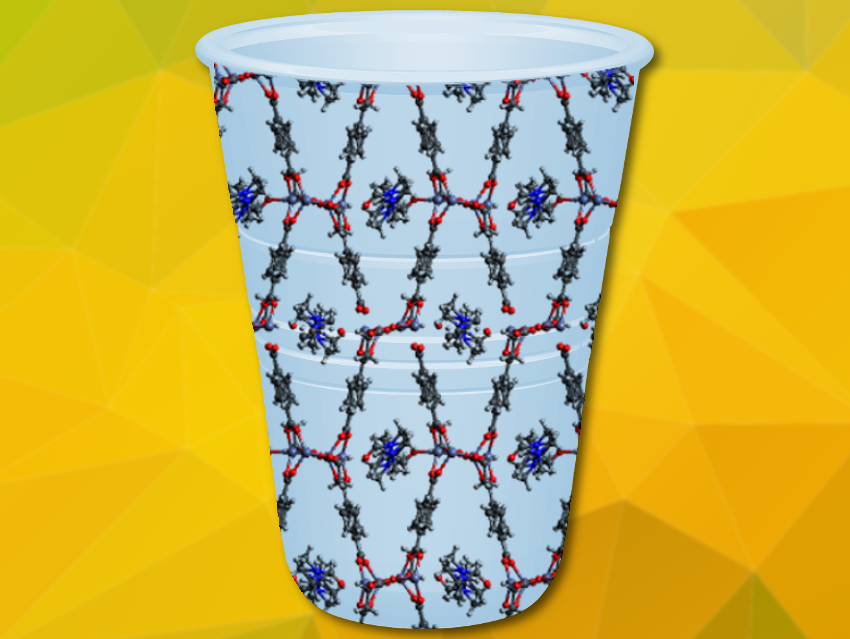Metal-organic frameworks (MOFs) consist of metal centers linked by organic ligands. They can be useful, e.g., in catalysis or for gas storage and separation. Several MOFs are made using terephthalic acid as an organic linker. Polyethylene terephthalate (PET) is made from 50 % terephthalic acid. This has been used to sustainably use waste PET: The plastic material is depolymerized and converted to MOFs. Other waste polymers could potentially be used in the same way.
Bradley P. Ladewig, Imperial College London, UK, and Karlsruhe Institute of Technology (KIT), Eggenstein-Leopoldshafen, Germany, and colleagues have developed a method for upcycling waste polylactic acid (PLA) into three different MOFs. The team synthesized ZnBLD [Zn2(bdc)(L-lactate)(dmf)](DMF) (bdc = 1,4-benzenedicarboxylate, dmf = N,N-dimethylformamide) as well as MOF-1201 [Ca14(L-lactate)20(acetate)8(C2H5OH)(H2O)] and MOF-1203 [Ca6(L-lactate)3(acetate)9(H2O)] from PLA instead of L-lactic acid. The PLA was depolymerized in situ under the reaction conditions.
The team found that the resulting MOFs differ only slightly from those prepared directly from lactic acid and retain their useful properties. Since pure L-lactic acid is expensive, this method could reduce the cost of lactic-acid-based MOFs.
- Upcycling a plastic cup: one-pot synthesis of lactate containing metal organic frameworks from polylactic acid,
Benjamin Slater, So-On Wong, Andrew Duckworth, Andrew J. P. White, Matthew R. Hill, Bradley P. Ladewig,
Chem. Commun. 2019.
https://doi.org/10.1039/c9cc02861g



